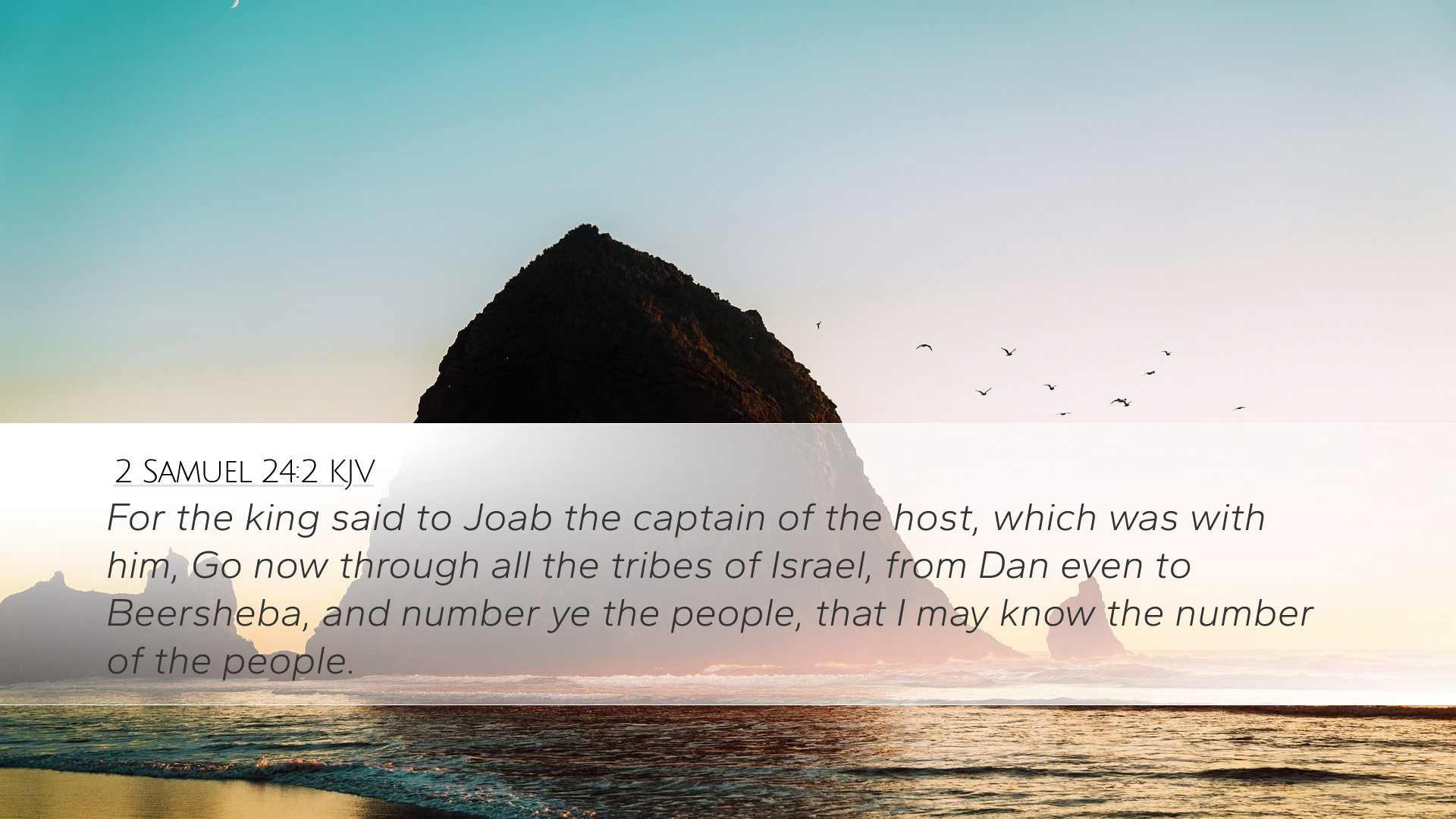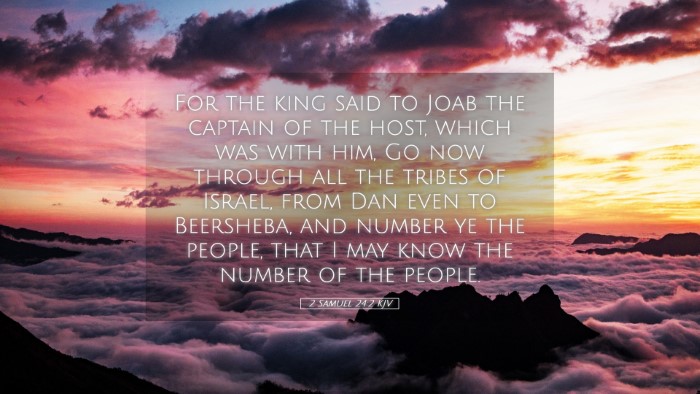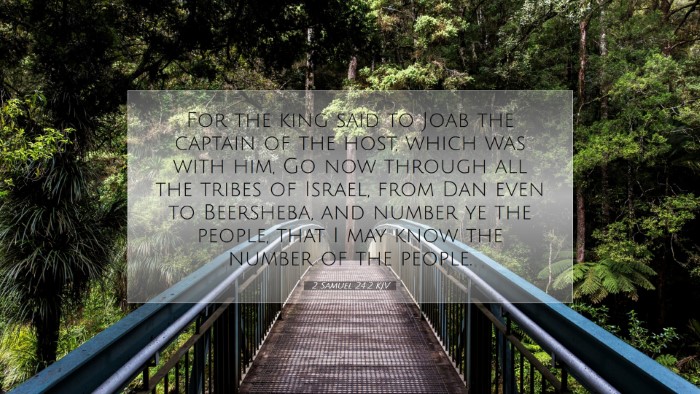Commentary on 2 Samuel 24:2
Verse: "So the king said to Joab the commander of the army who was with him, 'Go throughout all the tribes of Israel, from Dan to Beersheba, and count the people, that I may know the number of the people.'
Introduction
This verse finds itself situated within a crucial moment in the life of King David. The command to take a census of the people of Israel is a decision that carries significant implications, both politically and spiritually. A careful examination of this verse, enriched by the perspectives of esteemed commentaries such as those by Matthew Henry, Albert Barnes, and Adam Clarke, reveals deep theological insights and the broader narrative implications in the historical setting of Israel.
The Context of the Census
The act of counting the people, as initiated by David, raises essential questions regarding his motivations and intentions. Scholars note that this was not merely a logistical endeavor but also reveals something about David’s heart and reliance on God.
- Henry suggests that this command stemmed from pride and a desire to gauge power, noting how David's previous reliance on God stands in stark contrast to this act of human calculation.
- Barnes emphasizes that this census may reflect David’s growing dependence on military strength rather than divine favor, interpreting the King's directive as a shift in his confidence.
- Clarke illuminates the potential consequences of this act, indicating that a census could be seen as an assertion of sovereignty over God's chosen people, hinting at a deeper spiritual malaise.
The Role of Joab
Joab, as the commander of the army, plays a significant role in this command. His character is complex; he is a loyal servant, but also demonstrates shrewdness and sometimes subversive tendencies.
- Henry notes Joab's reluctance, suggesting that he understands the inherent dangers in such a command, which could have dire spiritual repercussions for Israel.
- Barnes highlights Joab’s military background, indicating that a soldier's instinct might have made him wary of counting the people, seeing soldiers as more than mere numbers—each one represents a life.
- Clarke provides a glimpse into Joab’s resistance, reflecting on how he attempts to dissuade David from proceeding, showcasing the tension between loyalty to the king and fidelity to God.
Theological Reflections
From a theological standpoint, this verse serves as a pivotal reflection on reliance and the nature of kingship:
- Human vs. Divine Dependence: Henry asserts that the act of numbering the people indicates a failure to trust in Yahweh's promises. David seemingly seeks assurance through numbers rather than through faith.
- The Nature of Authority: Barnes discusses the implications of leadership and the responsibility associated therewith, noting that a king is accountable not only for his actions but the spiritual welfare of his people.
- Judgment and Consequences: Clarke posits that this decision beckons a cautionary tale about the repercussions of turning away from reliance on God. The narrative unfolds to show the consequences of David's misstep as God intervenes with punishment.
Historical and Cultural Context
Understanding the historical backdrop against which this verse occurs is critical for full interpretation:
- Ancient Near Eastern Practices: In the culture of the Ancient Near East, counting people often served both administrative purposes and as a measure of military strength; thus, David's action might reflect cultural norms of kingship.
- Divine Sovereignty: The act of counting can also be contrasted with the Israelites' past, where God Himself numbered His people (as in the Exodus period), stressing the idea that true security comes from the Lord.
Conclusion
2 Samuel 24:2 serves as a rich text for reflection not only on David’s kingship and character but also on our own tendencies to seek security through means other than divine reliance. The insights from Henry, Barnes, and Clarke provide profound theological, historical, and pastoral reflections that continue to resonate for today's readers, prompting personal and communal examination of faith, leadership, and the ever-present call to trust in God alone.
References from Commentaries
The insights from public domain commentaries provide a diverse approach to understanding this critical passage:
- Matthew Henry: "Commentary on the Whole Bible" - Insights on human pride and dependence on God.
- Albert Barnes: "Notes on the Bible" - Highlights military and spiritual reflections.
- Adam Clarke: "Clarke's Commentary on the Bible" - Explores Joab's role and the consequences of David’s census.


